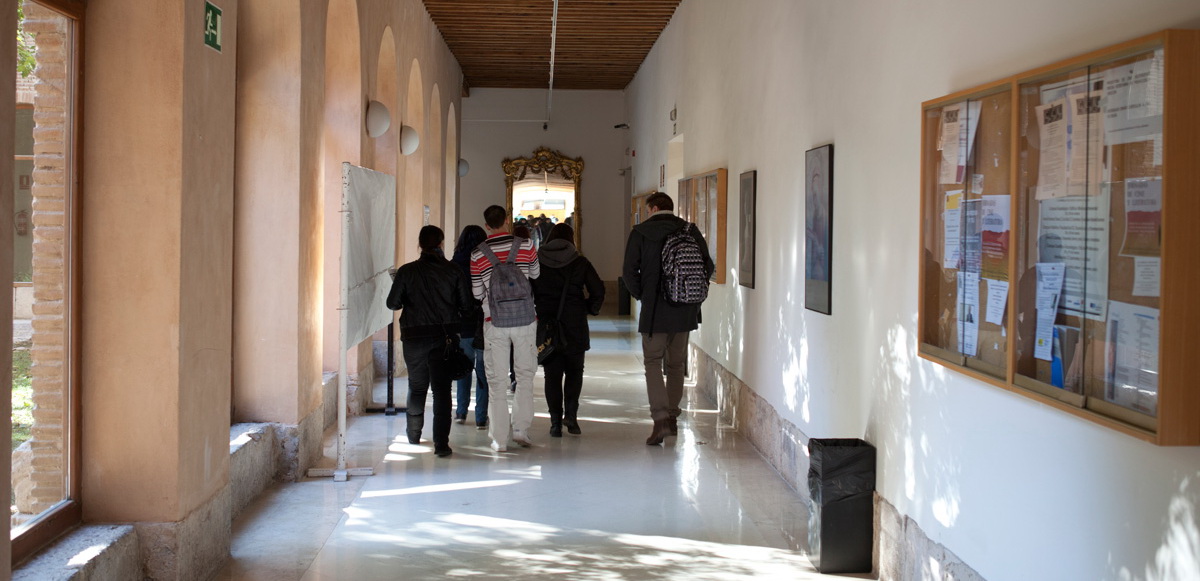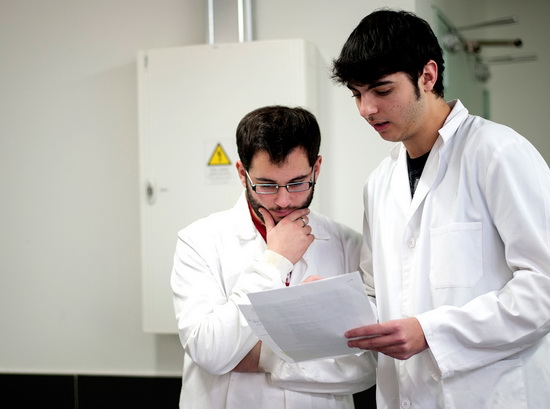
Qualification
Area of expertise
Electrical engineering, electronic engineering and telecommunications engineering.
Information leaflet
Participating Universities
Organising Centre, Department or Institute
Departments of Signal Theory and Communications, Electronic and Automation.
Teaching centre(s)
Torrejón de Ardoz Campus
Avenida de la Constitución, 236
Torrejón de Ardoz
Year Course Started
2026-27 (RD 822/2021)
Credits
Official Duration
One academic year, full-time
Minimum number of ECTS by type of registration and course
Type of teaching
Hybrid: Online/Onsite (please, contact for detail information: info.muia@uah.es)
Language/s
English
Level of qualification
Level 3 leading to the title of Master's Degree. Level 3 (Master's) of the Spanish Qualifications Framework for Higher Education (MECES) corresponds to level 7 of the European Qualifications Framework (EQF), in accordance with the provisions of the Royal Decree 22/2015, of 23rd January (BOE 07/02/2015).
Professional qualification
Orientation
Professional
Directors
María Pilar Martín Martín
Academic Committee
María Pilar Martín Martín
Roberto Gil Pita
Jorge Pérez Aracil
Roberto López Sastre
José Luis Álvarez Pérez
Contact
Administrative issues related to access and admission:
master.universitario@uah.es
Goals and Results of the Training and Learning Process
The goals of this Master's degree are in line with the stipulates of the Spanish Framework for Higher Education Qualifications (MECES) and ensure the achievement of the basic competencies required to obtain a master's degree, following article 3.3, Appendix I of R.D. 1393/2007.
Fulfilment of the goals means students have achieved competencies that must be consistent with the fundamental rights of equality between men and women, with the principles of equal opportunities and universal accessibility for the disabled, and with the values proper to a democratic and peace-loving culture.
Registration information
Number of places for new students
A minimum of 20 students are required to teach the Master
Reserved places: 5% for students with a certified disability of 33% or more.
General access conditions
Specific admission conditions
ADMISSION PROFILE:
This Master's program is designed for students with a solid technical background, preferable graduates with degrees or engineering qualifications in the field of Information and Communication Technologies (ICT), such as Computer Engineering, Mathematics and Computing, Telecommunications Engineering, Industrial Electronics, or related disciplines.
In terms of soft skills, candidates should demonstrate initiative, decision-making ability, autonomy, creativity, self-improvement, innovation, and motivation to learn, in order to maximize the benefit from the program.
Additionally, since the program is taught in English, a high level of written and spoken English proficiency is required. This can be demonstrated with an official English language qualification at a minimum B2 level (according to the Common European Framework of Reference for Languages), including assessments in all four areas: listening, reading, speaking, and writing. Examples of accepted qualifications include TOEFL, IELTS, APTIS, or Cambridge ESOL exams. These language requirements will not apply to students whose native language is English or those who have completed their entire undergraduate studies in English, provided appropriate documentation is submitted.
CRITERIA FOR ASSESSING MERITS AND SELECTION:
The selection of students for admission will be carried out by the Master’s program management and, among students who meet the Master’s program’s admission profile, each application will be assessed on a scale of 0-10 points based on:
· Average grade in these studies, on a scale of 0 to 10 and obtained in accordance with the provisions of Article 5.3 of Royal Decree 1125/2003, which establishes the European credit system and the grading system in official university degrees valid throughout the national territory: 7 points.
· Professional experience or relevant internships in technology-related roles, such as software developer, data analyst, or any practical experience that demonstrates problem-solving skills and the application of technological tools: 1 point
· Motivation letter where clarity in professional goals and interest in developing AI skills will be valued, in addition to the level of commitment and ability to apply acquired knowledge to real-world problems in the industrial field: 2 points.
Subjects, academic staff, competences, teaching guides and final project regulations
Continuance
Collaboration agreements and programmes
Registration
Fees
Fees: 1st matriculation: nationals and residents: 2.736 ; non-EU non-residents: 5.079 € (approximate information).
Calendar
Timetable
Venue
Material resources
Installations, services and plans
(Computer rooms, bibliographic resources, libraries, study rooms...):





